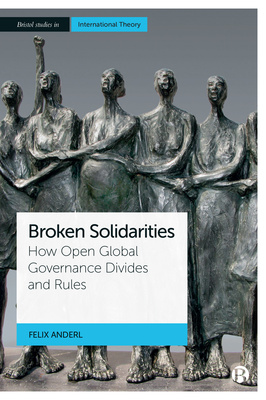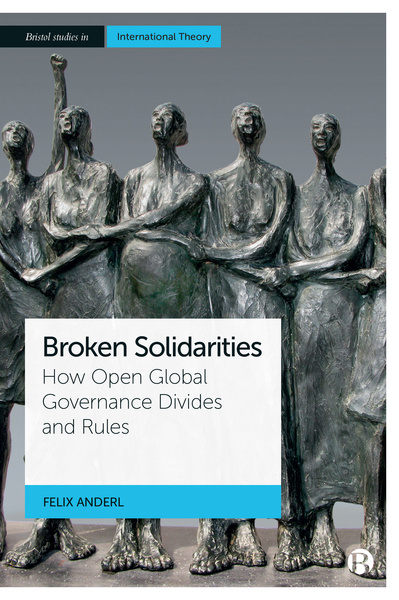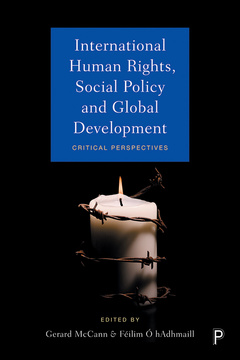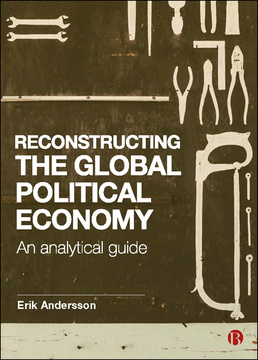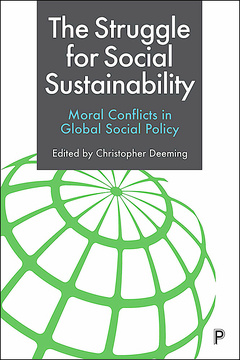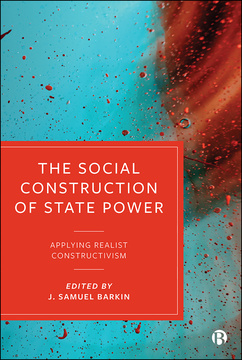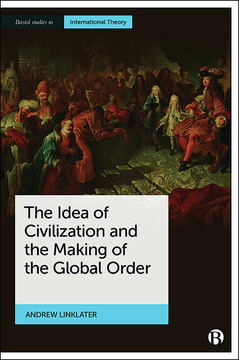ISBN
978-1529220223Dimensions
234 x 156 mmImprint
Bristol University PressISBN
978-1529220216Dimensions
234 x 156 mmImprint
Bristol University PressISBN
978-1529220230Dimensions
234 x 156 mmImprint
Bristol University PressISBN
978-1529220230Dimensions
234 x 156 mmImprint
Bristol University PressFelix Anderl’s book is a stimulating analysis of the decline of social movements against the World Bank and the rise of a new form of transnational rule.
Reflecting on the transnational mobilizations of the 1990s, the book examines activists’ struggles to sustain their momentum. It shows how the opening up of world economic institutions contributed to complex rule in global governance, creating access for some while weakening their critique and fragmenting the overall movement.
The book bridges international relations and social movement studies to observe international organizations and social movements in their interaction, demonstrating how social movements are divided and ruled in the absence of a ruler.
“A disheartened activist and brilliant scholar, Anderl rewrites the book on the dynamics of rule and resistance in global governance and the theorization of rule in international relations.” Nicholas Onuf, Florida International University
“This book is a major contribution to our understanding of both global social movements and global governance. Anderl’s powerful analysis makes us see the relationship between social movements and international organizations in an entirely different light. A must-read for international-relations scholars of any stripe.” Ayşe Zarakol, University of Cambridge
“Felix Anderl has produced a theoretically innovative and empirically rich book that re-frames debates about the role of advocacy groups in global governance. It is an impressive book that shows how openness and transparency also entail mechanisms of exclusion.” Ole Jacob Sending, Norwegian Institute of International Affairs
Felix Anderl is Professor for Conflict Studies at the Center for Conflict Studies at Philipps Universität Marburg.
Introduction
1 Social Movements and International Relations
2. Transnational Rule and Resistance
3. Complex Rule in Global Governance
4. Mechanisms of Fragmentation
5. A History of Interaction: The World Bank Group and Its Early Critics
6. When a Contentious Process Opens Up: Extractive Industries Review
7. Fragmentation in Contestation: The Movement during the EIR Process
8. Uncontentious Politics? The Civil Society Policy Forum
9. Fragmentation in Cooperation: Observing the Changing Practices of Critique
Conclusion







